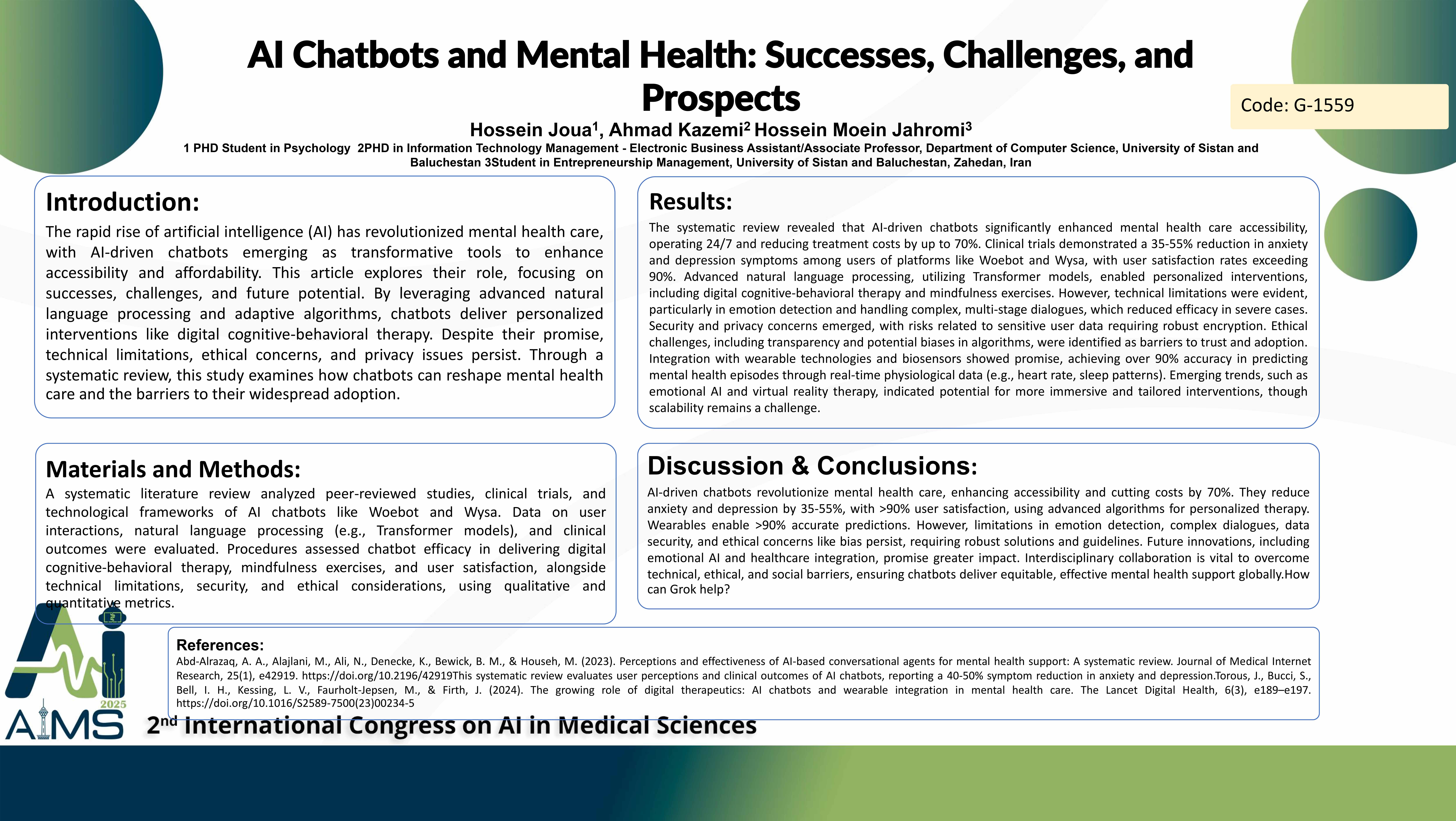چتباتهای هوش مصنوعی و سلامت روان: موفقیتها، چالشها و چشمانداز
کد: G-1559
نویسندگان: Hossein Moein Jahromi, Ahmad Kazemi, Hossein Jouya * ℗
زمان بندی: زمان بندی نشده!
برچسب: دستیار مجازی هوشمند
دانلود: دانلود پوستر
خلاصه مقاله:
خلاصه مقاله
Background and aims: The integration of artificial intelligence in mental health care has spurred innovative solutions like chatbots, addressing accessibility and affordability gaps. This study aims to evaluate the successes, challenges, and future potential of AI-driven chatbots in enhancing mental health service delivery. Method: A systematic literature review was conducted, analyzing peer-reviewed studies, technological frameworks, and clinical trial outcomes. The sample included data from platforms like Woebot and Wysa, focusing on user interactions, natural language processing capabilities (e.g., Transformer models), and clinical efficacy metrics. Procedures involved assessing chatbot performance in delivering digital cognitive-behavioral therapy, mindfulness interventions, and user satisfaction, alongside technical and ethical analyses. Results: AI chatbots improved mental health accessibility, operating 24/7 and reducing treatment costs by up to 70%. Clinical studies showed a 35-55% reduction in anxiety and depression symptoms, with user satisfaction rates above 90%. Advanced algorithms enabled personalized interventions, though limitations in emotion detection and complex dialogue management were noted. Security, privacy, and ethical concerns, including data protection and bias, emerged as challenges. Future integration with wearables and biosensors showed over 90% accuracy in predictive diagnostics. Conclusion: AI chatbots are transforming mental health care by enhancing accessibility and efficacy, but technical and ethical barriers must be addressed to realize their full potential. Interdisciplinary collaboration among technologists, psychologists, and policymakers is essential for advancing chatbot capabilities and ensuring ethical deployment. Future work should focus on improving emotion detection, integrating real-time physiological monitoring, and establishing comprehensive ethical guidelines to foster societal trust and adoption.
کلمات کلیدی
Artificial Intelligence, Mental Health, Chatbots, Digital
